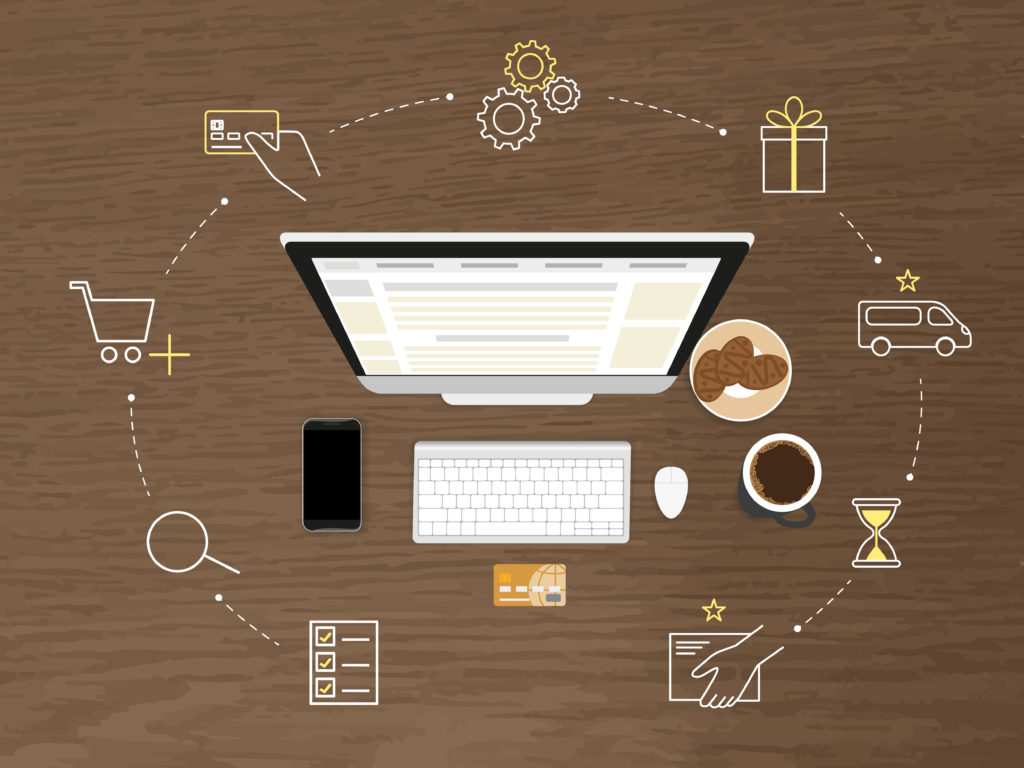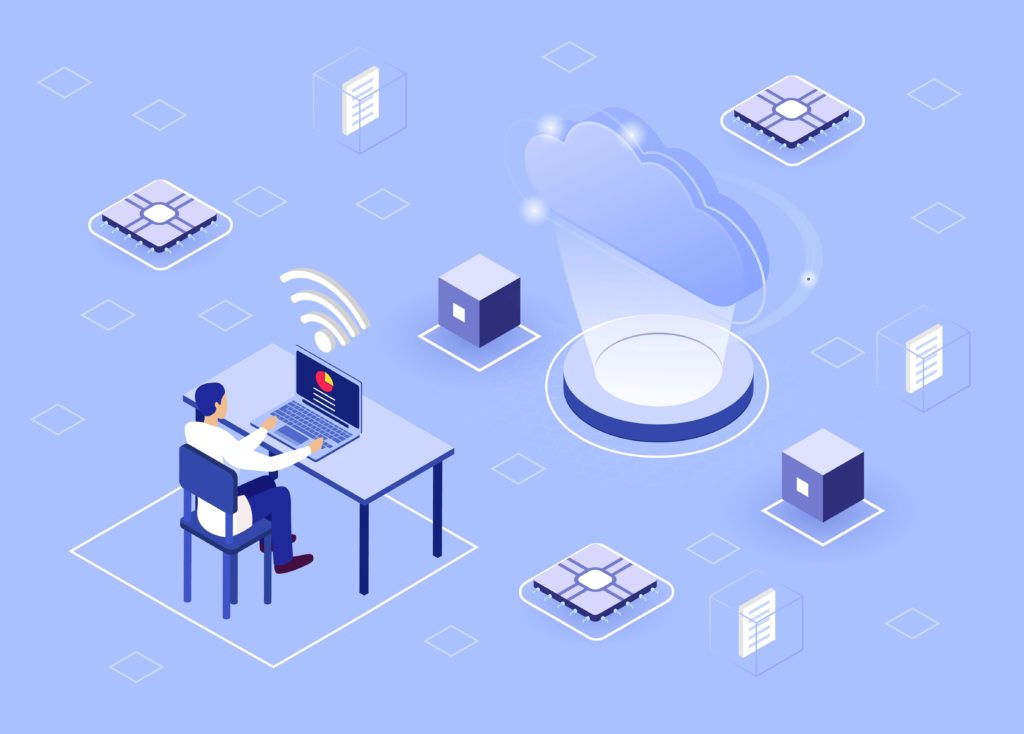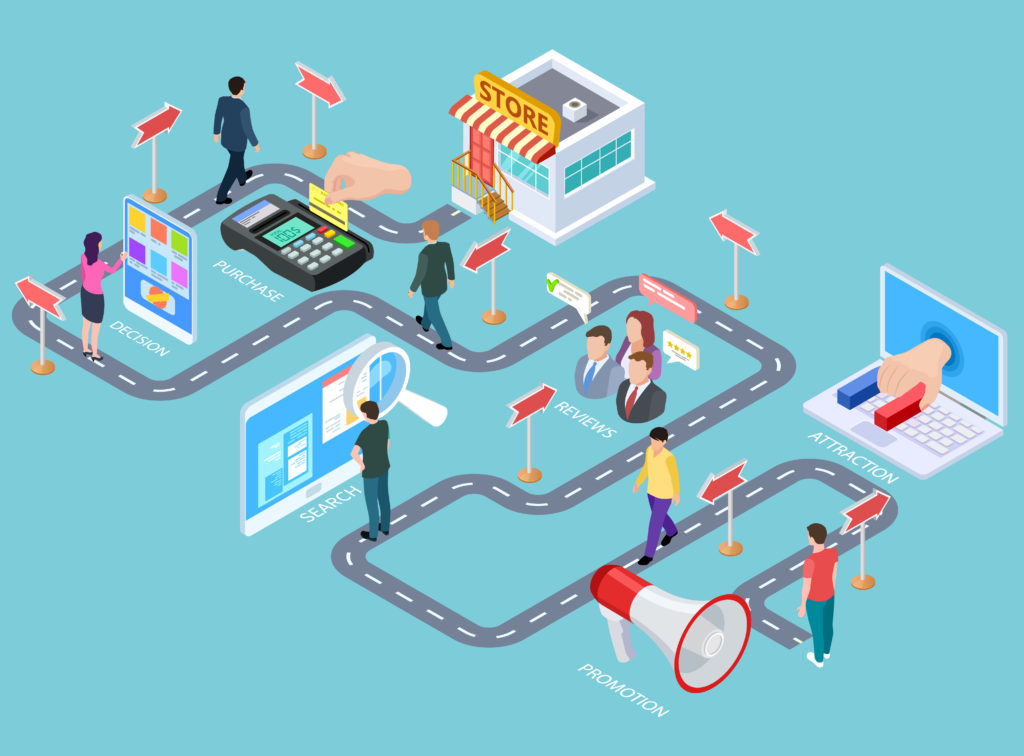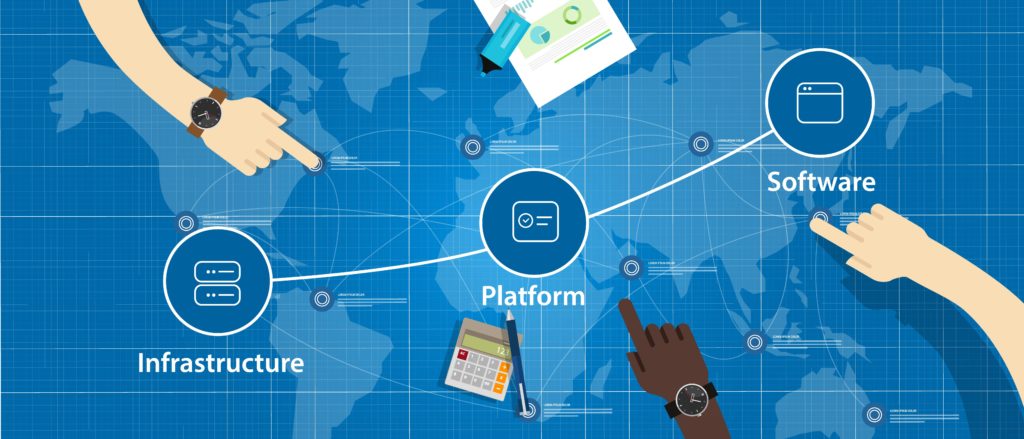LogiCommerce is trusted by global enterprise brands and wholesalers, across industries
Nowadays, an increasing number of companies are betting on eCommerce. That is why it is essential to have an eCommerce platform that allows you to continuously adapt to these evolving market habits and demands, as well as to the new technologies and trends.
Nowadays, there are more than 500 eCommerce platforms around the world. So, choosing the right platform to start doing Replatforming is not that easy, but it is recommended to consider multiple options before selecting the definitive one.
Although many businesses go ahead with the right platform, many others choose one that does not meet their long-term needs. That is why most of them consider the migration to another platform later in their business journey.
Contents
Before starting a migration process, it is vital to know your business needs and requirements and to analyze the functionalities and limits of the eCommerce platform, so that it can be identified whether or not the new solution to start doing the migration is a fit for your short-term and long-term goals.
An eCommerce is usually looking to the migration to a new platform because of the technological obsolescence, limitations and lack of scalability and functionalities of their current platform. The new eCommerce platform should improve performance and scalability, include native advanced features, simplify the administrative process and daily operations, and thus, reduce management time. Some of the main goals are also to reduce total costs, achieving the best Marketing and SEO tools, getting invisible and seamless updates in the background, integrating the platform easier with third-party solutions, and reaching higher levels of security, while also growing your business in a rapidly evolving market.
The best eCommerce platform for your business is not the most popular or well-known platform, it is the platform that can actually help you successfully to achieve the previously defined goals and aimed results.

Before starting a migration process to another platform, it is important to take into account several factors. Below, we mention some of the most decisive aspects when choosing one platform or another.
Language:
Code:
Platform:
Technology:
Identifying the needs and requirements of your business is key since this will define what you should consider to end up the migration to another platform successfully.
Do you need multiple currencies?
Define product prices and costs, discounts, shipping and payment systems in multiple currencies to reach a wider audience. Define prices for specific customers or geographic areas in multiple currencies. Create accounting entries by company and support multiple currencies. Configure and segment payment systems for each of your currencies and automatically convert prices based on real-time exchange rates.

Do you need multiple invoicing companies?
Create multiple companies in your eCommerce based on your different Head Quarters and bill your customers based on their location. Set up and apply taxes based on shipping or billing address from any of your businesses billing location.
Do you need to assign inventory among several warehouses?
Assign your warehouses to different logistics centers to efficiently manage your deliveries. Generate multiple shipments of an order based on different logistics criteria such as source warehouse, shipping carrier and delivery times. Assign inventory between multiple warehouses and accurately track items in stock for all your channels. Allow your customers to initiate returns or partial returns through their personal account. Setup and manage your warehouses to control the stock of your products. Define the quantity of stock and the date on which a warehouse will have stock. Set priorities between warehouses when discounting stock. Define the geographical areas of influence of each warehouse to cover your shipments. Configure the supply of stock from another warehouse if the linked warehouse with higher priority does not have stock.
Do you need to ship and deliver orders with local and international carriers?
Integrate with your preferred local and international carriers to get shipping labels, real-time rates, tracking codes and more. Automatically calculate shipping costs based on customer location and other advanced parameters. Specify allowed destination countries based on shipping method. Configure prioritized shipping conditions based on whether the product requires special transport based on its characteristics.
Do you need advanced promotion management?
Personalize shopping experiences through advanced discount segmentation and targeting. Configure different types of discounts: free shipping, % off the total, fixed amounts, gifts, unit discounts, NxM, and many more. Configure expiration dates for Vouchers and Coupon codes. Export coupon codes for offline distribution, mailings, newsletters, etc. Generate reports of discount codes used for in-depth analysis.
Do you need a powerful Order Management System (OMS) to track sales, orders, inventory and fulfillment?
Create custom order statuses to track and perform real-time actions. Send notifications when an order status changes. Place orders on behalf of your customers. Filter your payment systems based on a specific purchase amount.
Do you need to simplify the creation and management of your products?
Organize tree-shaped eCommerce categories easily. Offer the possibility to shop by brand. Customize purchase criteria and product behavior by customer, group, country and area. Assign a value to multiple products for mass updates. Define the EANs for each product combination and its options. Allow your customers to compare products by their qualities, features and ratings.
Do you need to get detailed reports on the performance of your eCommerce in real-time?
Quickly extract data with predefined reports or create your own reports. All essential metrics at a glance. Track simultaneous visitors, active shopping carts, conversion rates, abandoned rates and dozens of pre-defined business KPIs in real-time. Export reports in multiple formats for deeper analysis and cross-reference with your favorite tools. Automatically cross all your eCommerce data with Google Analytics to get detailed information.

Customer experience will directly influence the success of your eCommerce. A user-friendly and intuitive eCommerce will improve customer satisfaction and help to achieve your sales goals. To do so, it is important to know your customers' needs, their profile, consumer habits and payment preferences (fast, secure and efficient). Generally, knowing the customer's behavior to be able to segment them into groups and adapt content and promotions to each of them.
Nowadays, personalization is key. Customers are becoming more and more demanding and selective, and they look for very specific and targeted products. This is why it is essential for the platform to have high customization capability, allowing you to easily integrate different tools such as Marketing Automation, or 3D configurators for example, making it possible for your customers to personalize your products as much as possible according to their preferences. Offering a personalized service, both in product and customer service, is primordial to understand the customer and provide the best customer experience.
Measuring the customer experience is essential to discover potential opportunities to improve and analyze the 'Customer Journey' with KPIs such as:
By doing so, you will be able to apply changes and improvements in those sections of your online store that create less engagement with your customers. Customer experience is one of the key factors to take into account when switching from one platform to another.

The TCO must be considered. It means the sum of all costs and expenses of implementing and managing the eCommerce solution from a technical perspective including licensing fees, hosting, add-ons, plug-ins, feature development, graphic design and ongoing maintenance.
In addition, the migration process and possible downtime during migration must also be taken into account.
To optimize core processes and increase efficiency, it is a must to synchronize your inventory, orders, customer data, promotions and shipping details. An eCommerce platform should be able to seamlessly integrate with third-party solutions such as order management, enterprise resource planning, warehouse management, or any other real-time application, with maximum security and seamless communication.
Before starting the migration to another platform, make sure that this new solution will be able to be integrated with those tools you are already using.
With a Headless architecture, you will achieve greater flexibility and customization with fewer limitations in terms of design, upgrades and integrations. This will provide you with a huge competitive advantage because of the possibility to update and modify the front-end and the back-end without affecting the correct functioning, and with a much lower workload, achieving exceptional customer experience in all sales channels.
As your business grows, the traffic on your eCommerce will increase too, so any platform difficult to scale can hinder the growth of your business.
Because of this, it's important to have a platform that grows organically. Automatically scale up and down based on concurrent visitors to increase volumes and speed through traffic peaks. Get a platform that handles all technical aspects including updates, upgrades, and backups in the background without disruption.
The sooner you invest in a scalable solution, the easier it will be to grow your eCommerce. If at some point, your goal is to expand your business to other markets, scalability will help you preserve the quality of your products without sacrificing efficiency or the quality of your internal operations and customer service.
A Service Level Agreement (SLA) refers to a contract that stipulates the conditions and parameters that commit the service provider to meet service quality levels for the customer. These agreements are used to define expectations and ensure that companies deliver what they promise, while indicating the specific amount of time the company has available to respond and resolve incoming customer requests. It is also important that the software offers 24/7 support on critical issues.

To select the ideal platform, it will be essential to consider your business model (B2B, D2C, B2C or B2B2C); what features you need and what business opportunities may emerge over the next few years.
It is obvious that selling to another company or selling to an end consumer is not the same concept. That is why it is important to keep in mind that you will not need the same features for both. For example, in an eCommerce B2B (Business-to-business), where commercial transactions are carried out between companies, it will be essential to offer features such as specific and super segmented pricing policy, catalog adapted to user groups, management of commercial agents, minimum order quantity, recurring orders, mass purchases, B2B payment methods, geolocation of prices, etc.
On the other hand, for a D2C (Direct-to-consumer), where products go directly from the manufacturer to the consumer, you will need features such as pick-up and return points, store locator, discount rules, product packs, gift orders, purchase by brand, advanced product customization, bulk sales, product comparator, etc.
The D2C and B2C (Business-to-consumer) Business Model are very similar in terms of Needs and features for the eCommerce but they differentiate in the way of working on business level. With a D2C business model the brand that is the manufacturer, directly sells their products to the customers without intermediaries, while in B2C a seller usually sells products that were manufactured by other brands.
The migration to another eCommerce platform comes down to clearly defining your short- and long-term business goals, to ensure that the platform will be able to meet them successfully.
LogiCommerce is the proximity software developed 100% in Spain with 24/7 local support. A Unified B2B & B2C platform with more than 200 native and highly advanced features, full scalability and a very intuitive BackOffice, to create unique shopping experiences on any device, at an affordable price.
With LogiCommerce, you will always be ready to incorporate the latest innovations and market trends with greater speed and ease, being able to simplify daily operations by controlling and managing multiple channels from a single Control Panel.
Let’s talk about your migration project!

